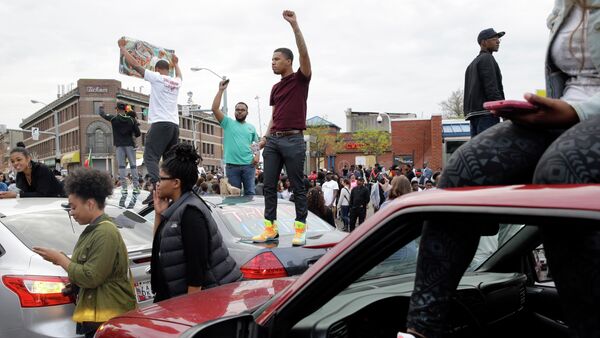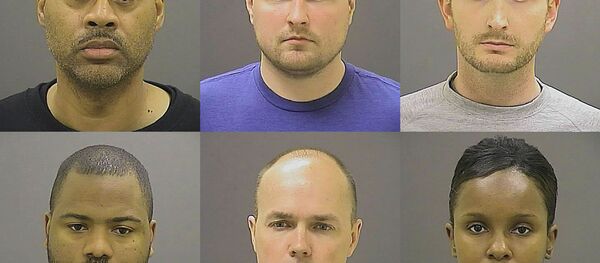Goodson was the driver of a police van in a “rough ride” transport which inflicted the spinal injury that later killed 25-year-old Freddie Gray. The young man’s death was ruled a homicide, but no one has been charged for his murder, Puryear explained to Loud&Clear host Brian Becker.
“This officer was the one who everybody felt was the most likely to be convicted, because he was the driver of the van and had a reputation of using these quote unquote ‘rough rides’ to brutalize prisoners without beating them.”
As a result, police officers in this case “admit[ted] they did what they were never supposed to do,” yet the judge said there’s nothing that “reaches the levels of criminal negligence.”
In Puryear’s view, the Gray case ruling is a blatant instance of the whitewashing of police by US courts. The landmark case would never have been brought to trial had not Baltimore been swept by rioters indignant of the injustice. Once the trial began, however, policemen appeared to have the upper hand.
“A judge would be likely to let them off,” Puryear said, explaining that the Law Enforcement Officers' Bill of Rights protects policemen in court and gives them an advantage over ordinary citizens.
The US judicial system is “made in such a way as to make it much more difficult to convict police officers that kill or brutalize average people. It points out that police are extra noble, and must always be given the advantage in doubt. This sets the stage for courts to go without convictions at all.”
The root of the problem, the expert said, is “unbelievable economic devastation in mostly black inner-city communities.” Government and big business has little incentive to employ under-educated urban blacks, and instead uses police as a “military solution to a social problem.”
“So you have to keep the lid on a boiling pot – that is police. You cannot have a catalyst system exist in this way without police being able to have this brutal occupation style that is designed to contain the social repercussions of deliberate economic devastation inside these communities.”
Puryear predicted that the acquittal of Goodson is not the end of police brutality injustice, suggesting that there is grounds to not expect that “all will be quiet on Baltimore front and across the country.”



